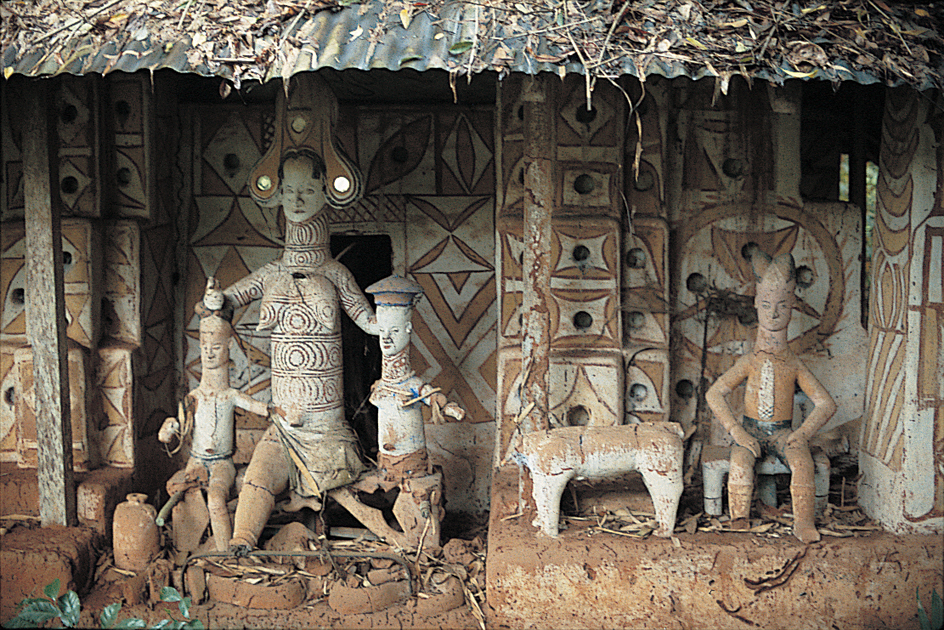Igbo are one of the largest ethnic groups in Nigeria. The Igbo are also called the Ibo. About 27 million Igbo live mainly in southeastern Nigeria. They occupy Nigeria’s highland plains, coastal areas, and tropical forests and valleys along the Niger River. Most Igbo make their living as farmers. Yams are their main crop. They also grow taro and cassava. The Igbo language has many dialects, reflecting a diverse and widespread population.

Before the 1900’s, the Igbo lacked a strong identity as a unified ethnic group. Some historians believe that the ancestors of the Igbo migrated to their present lands from regions farther north and west within the last few centuries. But archaeological evidence suggests that the Igbo have lived in their present area since prehistoric times. Traditional Igbo society consisted of confederations of villages and city-states (independent or nearly independent urban centers). A network of market centers supported a complex society. The Igbo had religious groups and workers in specialized trades.
In the mid-1400’s, coastal merchants sent many Igbo to Portuguese slave traders. The slavers brought Igbo from throughout the region and held them together in forts along the coast. There, the diverse captives began to develop a more unified sense of ethnic identity. The slavers shipped them to the Americas.
The United Kingdom gained control of Nigeria during the late 1800’s and early 1900’s and ruled it until 1960. Most Igbo adopted Christianity in the colonial period. However, many of them maintain their traditional African religion from before colonial times. In 1967, the eastern regions of Nigeria, including Igbo territories, declared independence from the rest of the nation. The Igbo strongly supported this new republic, called Biafra. Civil war broke out between Biafra and Nigeria. It lasted until 1970, when Biafra surrendered. Today, English is the official language of Nigeria. Few people speak Igbo. Many Igbo leaders worry that their language may disappear. They have asked the government to support the preservation of their language.
